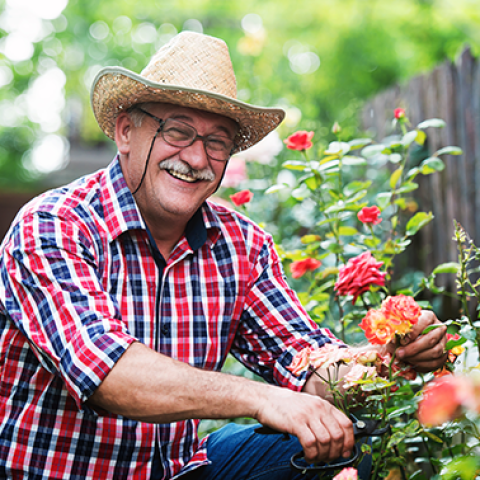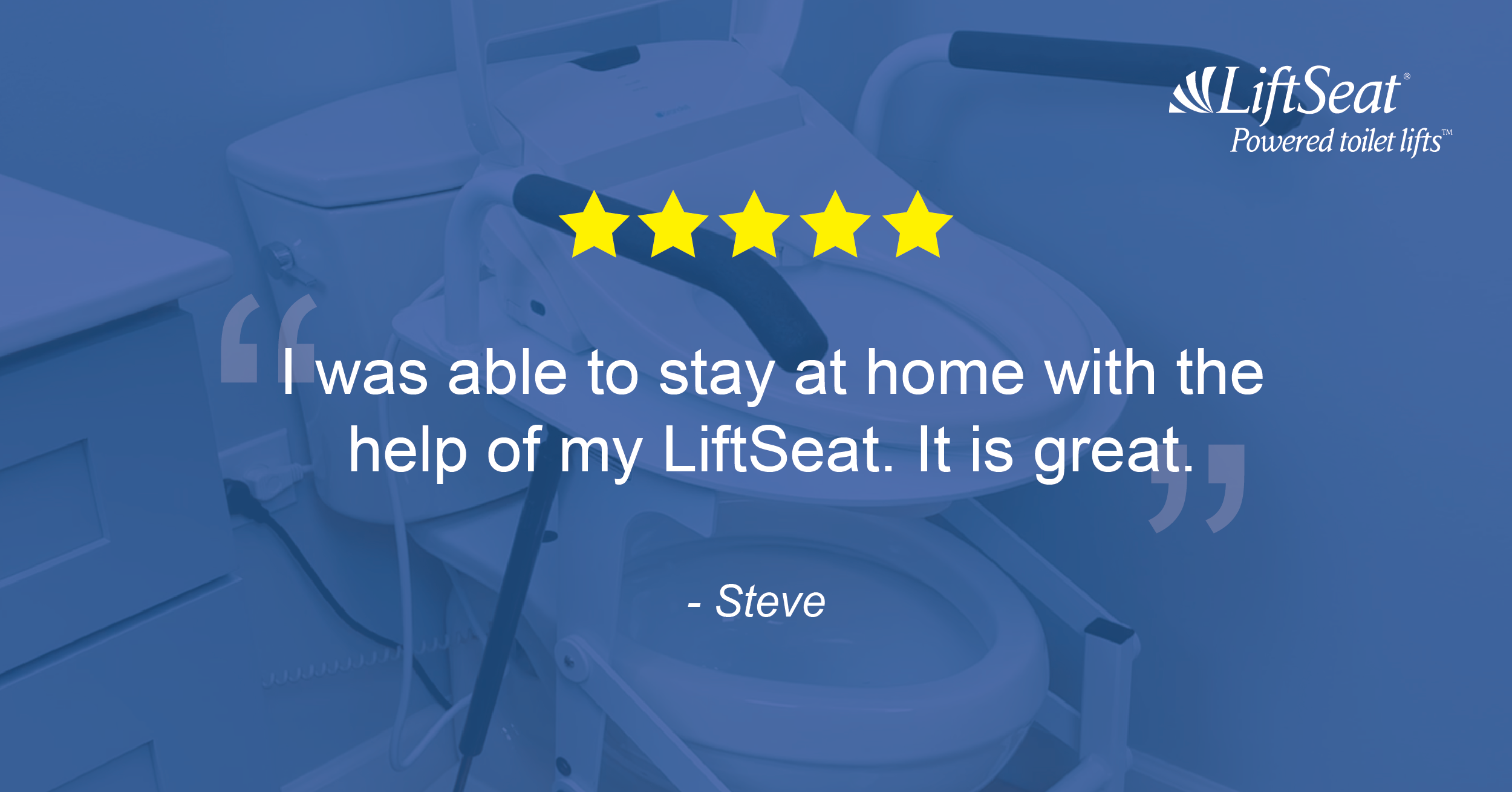How to Maintain Maximum Independence While Aging
04/12/2023
Independence is a basic human need, beginning in childhood and continuing through adulthood. In the results of a study published in “Healthy Aging Research”, participants reported “physical wellness” and “social wellness” as their top 2 priorities. Within the subcategories for social wellness, “the majority of participants (n =38%) identified independence, or the ability to remain in their home, provide adequate self-care, and retain the ability to drive, as their highest priority.”1
As we age and begin to depend more on others for things we were once able to do on our own, here are 3 basic things we can do, for ourselves or loved ones, to support independent living.
Staying Active
It's no coincidence that physical wellness and independence are both identified as common priorities among aging adults. These 2 qualities are closely intertwined - supporting one helps support the other. In other words, people who are more independent are often better off physically, and vice versa.
In their “Older Adults” fact sheet, the CDC specifically cites “maintain[ing] the ability to live independently and reduc[ing] the risk of falling and fracturing bones”2 as direct benefits of physical activity. They also cite many other specific health benefits of physical activity, from helping to manage common conditions such as diabetes, coronary heart disease and arthritis to promoting better mental health, all of which contribute to increased independence.
It is important to note that “physical activity need not be strenuous to achieve health benefits” and that “older adults can obtain significant health benefits with a moderate amount of physical activity”2. In fact, adequate amounts of daily activity are often achieved doing normal things around the home, such as gardening.
Making Home Modifications
Making some simple changes to your home can help create a more comfortable and safer environment in which to age. The goal of most senior-friendly home modifications is to make it easier to perform necessary, day-to-day tasks such as bathing, using the toilet, and cooking. Using home design to support these so-called “activities of daily living” (ADLs) reduces reliance on others for help, as well as fall/injury risk.
The bathroom is one of the first rooms that you should consider modifying. Injuries commonly occur in the bathroom, especially near the tub/shower and toilet. Taking care to make surfaces less slippery and providing adequate support are important steps in helping people with limited mobility and strength safely and independently use the bathroom.
Installing grab bars in and around the shower, as well as an in-shower bench, can help facilitate bathing. Purchasing a raised toilet seat, over toilet grab bars, or powered toilet lift will help with using the toilet. Power toilet lifts, like LiftSeat, are especially beneficial for anyone with significant lower or upper body weakness because they support the entire sit-to-stand motion. LiftSeat is also great for anyone with limited upper body mobility since it can be modified with a bidet for hands-free cleaning and true independence in the bathroom.
LiftSeat Power Toilet Lifts LiftSeat helps thousands of people use the bathroom safely and independently every day. Hear from real LiftSeat customers and get your custom LiftSeat quote here.
|
Fostering Good Mental Health
Much attention is given to staying physically healthy when aging, but mental wellness is also important, both for overall well-being and supporting independence. One of the biggest mental health issues plaguing seniors is loneliness.
The CDC cites that “older adults are at increased risk for loneliness and social isolation because they are more likely to face factors such as living alone, the loss of family or friends, chronic illness, and hearing loss.”3 Yet loneliness is not only detrimental to mental health - it has also been shown to have negative effects on physical health.
People aged 50 and up who are socially isolated are more likely to have heart disease, suffer a stroke, and die earlier than their more socially enriched counterparts.3 Taking steps to prevent and/or minimize loneliness are crucial to maintaining good overall health and maximum independence.
To minimize loneliness and social isolation, the CDC recommends speaking with your doctor, who can “assess your risk” and “get you connected to community resources for help”.3 Staying active and pursuing a shared interest can be helpful as well. Keeping active helps you feel better overall and makes it easier to leave the house, while participating in an activity/hobby can connect you with people who share your passions.
Most of us will inevitably lose some independence as we age – and that’s okay. The goal is not to maintain complete independence, because the benefits of having a helping hand will often outweigh the potential detriments due to loss of independence. Maintaining physical and mental health, however, have been shown to support overall health and generally help people have a higher level of independence for longer.
References:
- Strout, K., Ahmed, F., Sporer, K., Howard, E. P., Sassatelli, E., & Mcfadden, K. (2018). What are older adults wellness priorities? A qualitative analysis of priorities within multiple domains of Wellness. Healthy Aging Research, 07(02). https://umaine.edu/las/wp-content/uploads/sites/5/2018/06/strout-et-al-2018-wellness-and-older-adults.pdf
- Centers for Disease Control and Prevention, Physical activity and health: A report of the surgeon general (1996). Atlanta; U.S. Dept. of Health and Human Services, Center for Disease Control and Prevention, National Center for Chronic Disease Prevention and Health Promotion. Retrieved April 11, 2023, from https://www.cdc.gov/nccdphp/sgr/olderad.htm
- Centers for Disease Control and Prevention. (2021, April 29). Loneliness and social isolation linked to serious health conditions. Centers for Disease Control and Prevention. Retrieved April 11, 2023, from https://www.cdc.gov/aging/publications/features/lonely-older-adults.html
This content is not intended to be a substitute for professional medical advice, diagnosis, or treatment. Always seek the advice of your physician or other qualified health provider with any questions you may have regarding a medical condition.
